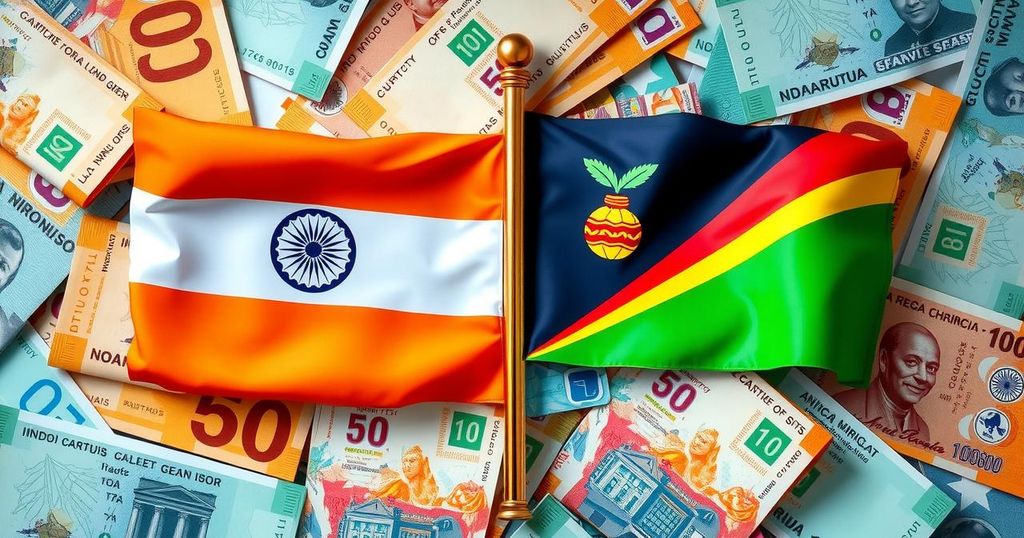India and Mauritius have signed a MoU to facilitate trade in local currencies, enabling the use of the INR and MUR for transactions. This agreement aims to reduce reliance on hard currencies and promote bilateral trade, investments, and financial stability. Key highlights include the implementation of an INR Clearing Centre and the LCS to enhance economic integration between the two nations.
On March 12, 2025, the central banks of India and Mauritius executed a Memorandum of Understanding (MoU) aimed at facilitating trade in local currencies. The agreement enables the use of Indian Rupees (INR) and Mauritian Rupees (MUR) for cross-border transactions, thereby establishing a framework to reduce dependence on major hard currencies. Prime Minister Narendra Modi and his counterpart Navinchandra Ramgoolam witnessed the exchange of MoU documents during PM Modi’s official visit to Mauritius.
The MoU includes the implementation of the INR-MUR Local Currency Settlement (LCS) System, which is intended to enhance bilateral trade, remittances, and economic stability. Through this initiative, both countries seek to improve their respective currency exchange markets. The LCS will support trade by promoting transactions in INR and MUR for both current and permissible capital account activities between India and Mauritius.
Moreover, the agreement outlines the establishment of an INR Clearing Centre in Mauritius and the integration of INR as a settlement currency within the Mauritius Automated Clearing and Settlement System. Consequently, Indian banks will be able to maintain accounts in INR at the Bank of Mauritius for various transactions, thus facilitating smoother financial operations.
This INR Clearing Centre will eventually extend to the Regional Payment and Settlement System of the Common Market for Eastern and Southern Africa (COMESA), positioning Mauritius as a strategic hub for INR clearing on the continent. The leaders emphasized that settling trade in local currencies would mitigate risks associated with bilateral trade.
Historically, the Reserve Bank of India has allowed trade transactions in local currencies by permitting authorized Indian banks to establish Special Rupee Vostro Accounts (SRVA) for correspondent banks of trade partners. This approach has seen several international banks set up vostro accounts in India, thereby facilitating transactions in foreign local currencies.
India’s efforts to transition the Indian Rupee into a prominent global currency are ongoing, with the country actively promoting international trade settlements in its currency. A currency is designated as “international” when it is widely accepted worldwide as a medium of exchange. So far, India has engaged in rupee-denominated trade with several nations and continues to collaborate closely with others to broaden this initiative.
The collaboration between India and Mauritius through the recent MoU signifies a strategic advancement in facilitating trade through local currencies. The establishment of the INR-MUR Local Currency Settlement System will enhance bilateral economic relations and reduce reliance on hard currencies. Additionally, the focus on creating an INR Clearing Centre in Mauritius aims to elevate its position as a financial hub for INR settlement in Africa. Overall, this initiative reflects India’s broader vision of internationalizing the Indian Rupee and expanding its role in global trade.
Original Source: www.aninews.in






